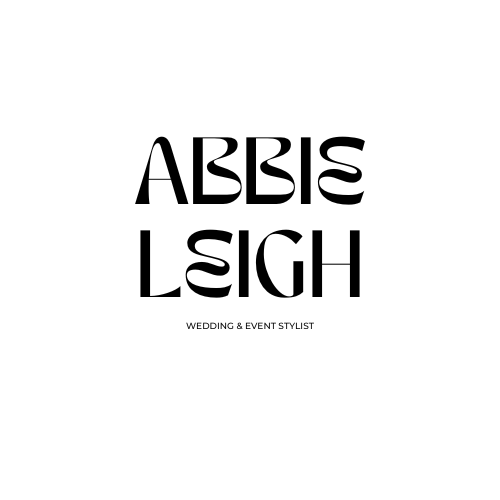do you need a wedding stylist or a planner?
What is the Difference Between a Wedding Stylist and a Wedding Planner?
When you start planning your wedding, the excitement of envisioning your perfect day can quickly turn into a whirlwind of decisions. One of the first choices you’ll need to make is deciding what kind of help you might need. Two key roles in the wedding industry are the wedding stylist and the wedding planner, and while their responsibilities can sometimes overlap, they serve distinct purposes. Understanding the difference between the two can help you determine which professional is best suited to your needs—or if you might want both!
The Wedding Stylist: Crafting the Aesthetic
A wedding stylist is your go-to person for everything visual. They are the creative minds who focus on the design and atmosphere of your wedding, ensuring that every detail is cohesive and reflective of your personal style. Here’s a deeper look into what a wedding stylist does:
Designing the Look and Feel
Imagine walking into your wedding venue and seeing your vision perfectly brought to life—from the color scheme and floral arrangements to the table settings and lighting. This is the magic that a wedding stylist creates. They work with you to understand your tastes, themes, and ideas, and then develop a design plan that captures your vision. Whether you're dreaming of a rustic chic affair or a modern minimalist celebration, a wedding stylist will ensure that every element is styled to perfection.Selecting and Sourcing Decor
Once the design plan is in place, a wedding stylist takes charge of sourcing all the decor elements needed to bring it to life. This might include everything from selecting the perfect linens and tableware to finding unique props and decorative pieces that align with your theme. They have a network of trusted vendors and can often secure special items that are hard to find on your own.Setting Up and Styling on the Day
On the day of your wedding, your stylist will be on-site to set up and arrange all the decor elements, ensuring that everything is positioned just right. They’ll make sure the flowers are perfectly arranged, the tablescapes are stunning, and every visual detail aligns with the overall aesthetic. Their job is to create a beautiful, cohesive environment that leaves you and your guests in awe.Personalising Your Wedding
A key part of a wedding stylist’s role is to personalise your wedding so that it reflects you as a couple. This could involve incorporating family heirlooms, designing custom signage, or adding unique touches that tell your love story. These personal elements are what make your wedding truly one-of-a-kind.
The Wedding Planner: Orchestrating the Event
While a wedding stylist is focused on the visual aspects, a wedding planner is all about logistics. They are the organizers who ensure that every aspect of your wedding runs smoothly, from the initial planning stages to the moment you say “I do.” Here’s what a wedding planner typically handles:
Managing the Timeline
A wedding planner is responsible for creating a detailed timeline that outlines every step of the planning process and the wedding day itself. They’ll schedule appointments, coordinate with vendors, and make sure that everything happens on time. This timeline is the backbone of your wedding, ensuring that no detail is overlooked.Vendor Coordination
One of the most important roles of a wedding planner is to liaise with all your vendors. They handle contracts, payments, and communications, making sure that everyone knows what they need to do and when. On the day of the wedding, your planner will ensure that all vendors arrive on time and that their services are executed as planned.Budget Management
Sticking to a budget can be one of the most challenging parts of planning a wedding. A wedding planner will help you allocate your budget, advising on where to spend and where to save. They’ll track expenses, negotiate with vendors, and keep you informed so that you stay within your financial limits.Handling Logistics and Troubleshooting
From securing permits to organizing transportation and managing the guest list, a wedding planner takes care of all the logistical details. They are also your problem solvers—if something goes wrong, they’ll step in to fix it without you even knowing. Their job is to take the stress off your shoulders so that you can enjoy your day.Coordinating the Wedding Day
On the big day, your wedding planner acts as the conductor, making sure that everything runs like clockwork. They’ll coordinate with vendors, oversee the setup, manage the schedule, and handle any last-minute issues that arise. Their goal is to ensure that you can relax and focus on celebrating with your loved ones.
Do You Need Both?
Now that you understand the difference between a wedding stylist and a wedding planner, you might be wondering if you need both. The answer depends on the scope of your wedding and your personal needs.
If you’re highly detail-oriented and have a strong vision for your wedding design, but need help bringing it to life, a wedding stylist might be all you need.
If you’re more focused on the logistics and ensuring that everything runs smoothly, a wedding planner could be the perfect fit.
However, if you want a truly seamless experience where both the design and logistics are handled, hiring both a stylist and a planner is ideal. Many couples opt for this combination to ensure that every aspect of their wedding is meticulously planned and beautifully styled.
Whether you choose a wedding stylist, a wedding planner, or both, the key is to find professionals who understand your vision and can help bring your dream wedding to life. A wedding stylist will focus on the aesthetics, creating a stunning environment that reflects your style, while a wedding planner will handle the logistics, ensuring that everything goes off without a hitch. Together, they can create a wedding that’s not only beautiful but also stress-free, allowing you to fully enjoy your special day.
